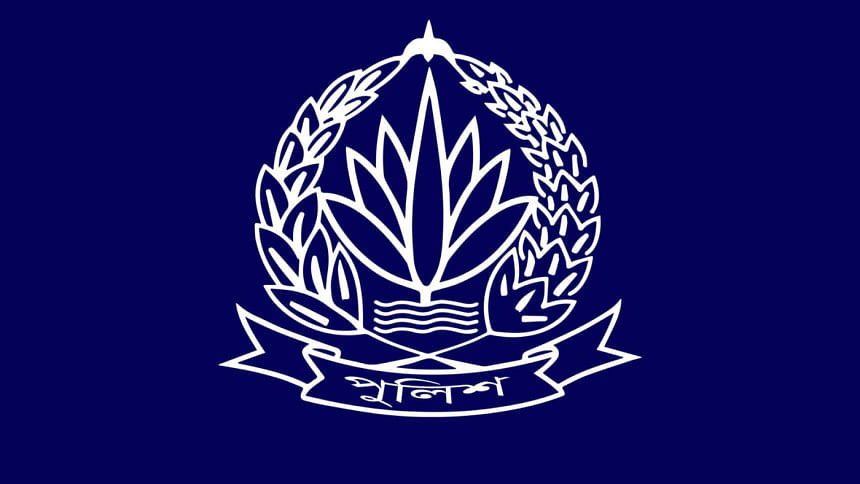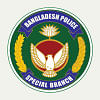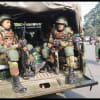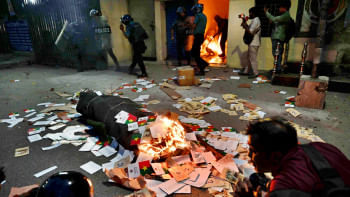Police struggle to regain their ‘lost morale’

One year after the fall of the Awami League government, the police force is still reeling -- its morale shattered, its chain of command in tatters.
These phrases were widely used in the early weeks of the new administration formed on August 8 last year. And for a time, they rang true.
The force faced intense public backlash for its role in the violent crackdown, including indiscriminate firing and excessive use of force against protesters. Its members were gripped by a crippling fear, fuelled by arrests of officers accused of killings during the July mass uprising.
Upon assuming office, the interim administration took a raft of measures to restore the force's morale. It brought in new leadership, raised risk allowances, and rolled out a wave of promotions.
But these steps have done little to improve the situation. In fact, "lost morale" has become a catch-all explanation for everything from rising crime rates to sluggish emergency responses. Fear of reprisal, the absence of seasoned officers, and a loss of public trust have left many officers hesitant to intervene. This vacuum in enforcement is now being blamed for a string of violent incidents.
Even the police chief, Inspector General of Police (IGP) Baharul Alam, recently admitted that the force is still underperforming.
Speaking to The Daily Star, several police officers said they are reluctant to engage in violent situations, fearing that they won't get any support if they come under harm.
They noted that people have increasingly disregarded instructions from police since August last year.
Some officers voiced frustration that no visible steps have yet been taken to deliver justice over the killings of at least 44 police personnel during and immediately after the uprising.
Many officers shared that their family members strongly discourage them from engaging in situations that involve high risks.
They said their low morale stems primarily from the absence of superior officials who have been either sacked or are absent from duty.
The current officials --many without experience in leadership roles -- are struggling to effectively guide their subordinates, they mentioned.
Seeking anonymity, an officer-in-charge of a police station in the capital said, "When I ask constables to visit the scenes of incidents, many of them hesitate. This is because police members are occasionally assaulted or verbally abused by locals."
An assistant sub-inspector (ASI) stationed in Dhaka said, "During the tenures of political governments, police always got support from the administration. But that support is no longer available. That's why officers now think twice before making any decision."
Echoing him, another ASI said, "Many officers believe that it is now pragmatic to avoid a conflict situation because if they get into trouble, no one is there to protect them."
EXAMPLES OF POLICE INACTION
Over the last couple of months, several video clips of criminals committing crimes in the presence of law enforcers have gone viral on social media. Police personnel were seen playing the role of mere spectators while the offenders simply walked away after committing crimes.
On August 6, a journalist was assaulted by extortionists in broad daylight in front of a policeman while investigating alleged extortion of auto-rickshaw drivers in Gazipur. The policeman was seen taking no action.
Video footage of the attack went viral a day later, sparking widespread outrage.
Earlier, a video of a machete-wielding man went viral on social media on July 18. He was seen casually walking past an on-duty traffic police after mugging a person near Dhanmondi road 32 the previous night.
Another mugging incident occurred at Malibagh rail gate on June 7, with a police patrol vehicle parked just 30 to 40 yards away.
Yet, no officer responded to the victim's screams. CCTV footage confirms both the attack and the presence of the vehicle that belonged to Shahjahanpur Police Station.
Another video making rounds on social media was that of a mob assaulting ex-chief election commissioner KM Nurul Huda in front of police at his Uttara residence on June 22.
Dressed in a white T-shirt and lungi, Huda, with a garland of shoes around his neck, was surrounded by a group of unidentified individuals. Police were seen standing beside Huda during the assault.
For a time, scenes of mobs assaulting detainees, mostly AL leaders, at lower court premises became common, even though they were brought in under heavy police escort.
Asked about police inaction, AHM Sahadat Hossain, assistant inspector general of police at the PHQ, said, "Police personnel are carrying out their duties with professionalism. Members of the force at all levels are working tirelessly to maintain law and order.
"If police officers are found guilty of not performing duties properly, departmental actions are taken against them… There is no scope for negligence in duty," he told The Daily Star.
CONCERN OVER LAW AND ORDER
Evaluating one year of the interim government, Ain O Salish Kendra recently said Bangladesh continues to witness human rights violations amid a deterioration of law and order.
"Arbitrary arrests continue along with custodial deaths and extrajudicial killings, which are reminiscent of the previous regime's repressive tactics. The deterioration of law and order has left citizens increasingly anxious about their safety," said the rights organisation in a statement on August 7.
The police headquarters' database also indicates a rising trend in crimes.
PHQ statistics show 4,180 murder cases were filed in 11 months from August last year to June this year. Many of these cases, according to the PHQ, were filed between August and December last year over killings during the mass uprising.
Of the 4,180 cases, at least 1,933 were filed from January to June this year, averaging 11 cases per day.
During the same period last year, the number of murder cases was 1,533, meaning eight cases were filed every day, shows PHQ data.
At a press briefing on July 19, IGP Baharul Alam said the police force has yet to fully regain its effectiveness.
"Our main challenge is to make the force one hundred percent effective after such a traumatic experience [last year] … You could say we haven't been one hundred percent successful -- perhaps not even fifty percent. We need to find a way, given the scale of what we're facing."
Following the AL government's ouster, at least 50 officers with 25 years of service were sent into forced retirement, while another 23 officers holding ranks of ASP and above were arrested in connection with cases related to the mass uprising.
At least 57 officers -- from ASP to additional DIG -- have been absent from duty for more than 60 days.
In addition, 119 top and mid-level officers, including DIGs, additional DIGs, and SPs, have been attached to various units without specific responsibilities, meaning their primary duty is limited to attending office and handling paperwork.
The figure represents a fraction of the police force with a total of 2.13 lakh members.
FIRM ACTION NEEDED
Stressing the need for firm directives to improve law and order, former IGP Nurul Huda said that those taking the law into their own hands should be brought to justice immediately.
He noted that there had been fears of escalation in revenge attacks and counter-violence following the uprising, but that didn't happen.
"Eventually, revenge killings stopped… people didn't resort to counter-violence. That's why I would say the situation is comparatively better," Huda added.


 For all latest news, follow The Daily Star's Google News channel.
For all latest news, follow The Daily Star's Google News channel. 








Comments